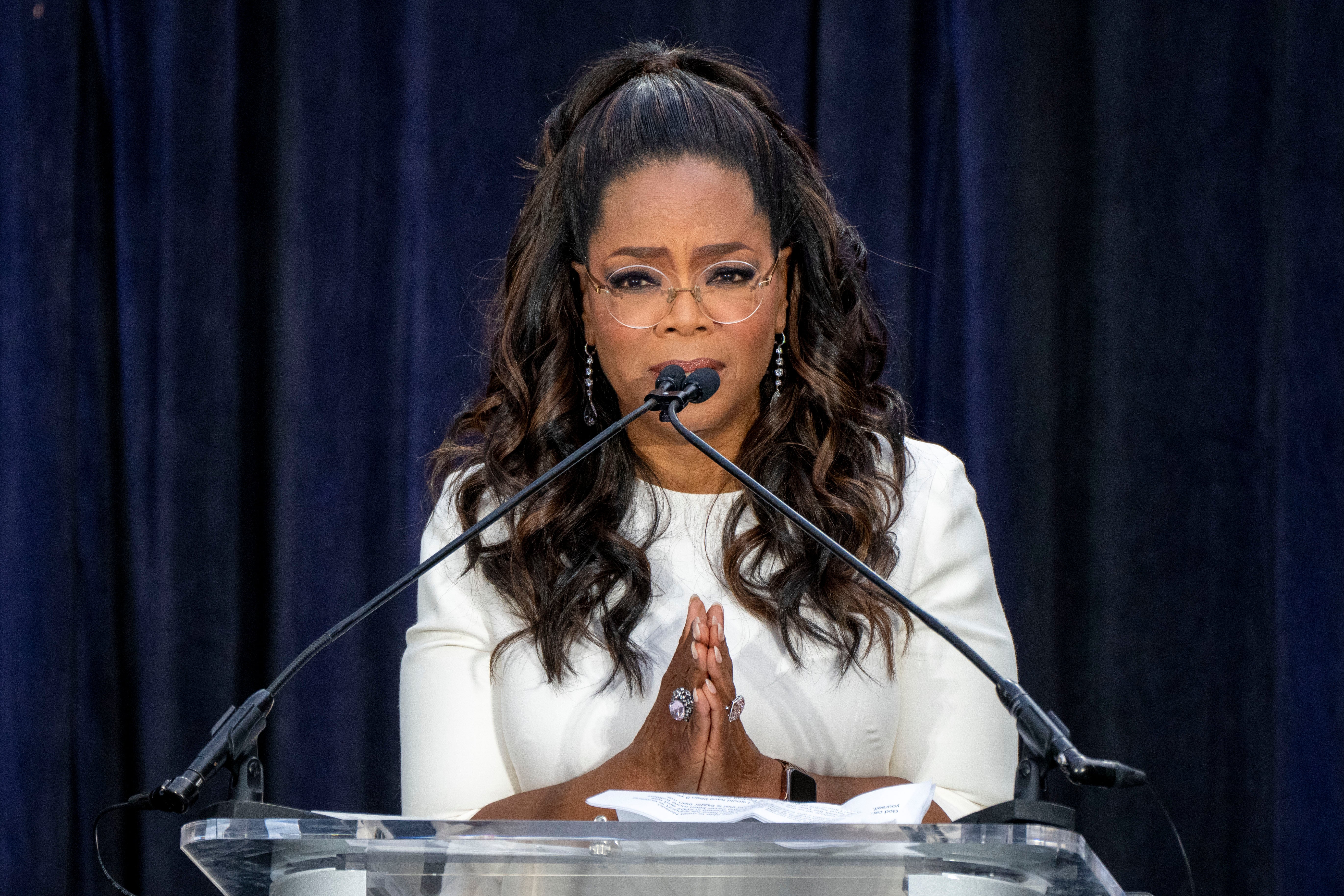Oprah Winfrey opens up about suffering decades of weight-shaming: ‘Ridiculed on every late night show’
Oprah discusses taboos surrounding obesity and weight-loss drugs on new special
Your support helps us to tell the story
From reproductive rights to climate change to Big Tech, The Independent is on the ground when the story is developing. Whether it's investigating the financials of Elon Musk's pro-Trump PAC or producing our latest documentary, 'The A Word', which shines a light on the American women fighting for reproductive rights, we know how important it is to parse out the facts from the messaging.
At such a critical moment in US history, we need reporters on the ground. Your donation allows us to keep sending journalists to speak to both sides of the story.
The Independent is trusted by Americans across the entire political spectrum. And unlike many other quality news outlets, we choose not to lock Americans out of our reporting and analysis with paywalls. We believe quality journalism should be available to everyone, paid for by those who can afford it.
Your support makes all the difference.Oprah Winfrey opened up on Monday on a TV special about her struggle with weight loss after more than two decades of her body being under scrutiny.
“For 25 years, making fun of my weight was national sport,” Winfrey said in the special “An Oprah Special: Shame, Blame and the Weight Loss Revolution”.
“I wanted to do this special for the more than 100 million people in the United States and the over one billion people around the world who are living with obesity,” Winfrey said as she opened the special.
“Maybe that’s you or maybe that’s somebody you love.”
Winfrey’s decision to talk about the shame surrounding weight comes at a good time with conversations around weight-loss drugs such as Ozempic on the rise. A report by data-analytics firm Trilliant Health showed that quarterly prescriptions for Ozempic quadrupled between early 2020 and 2022 in the US.
“In my lifetime I never dreamed we would be talking about medicines that would be providing hope to people, like me, who have struggled for years with being overweight or with obesity,” Winfrey said.
“I come to this conversation with the hope that we can start releasing the stigma and the shame and the judgement – to stop shaming other people for being overweight or how they choose to lose or not lose weight – and more importantly to stop shaming ourselves.”

The 70-year-old added that she decided to stop serving on the board of Weight Watchers because she did not want a "perceived conflict of interest" for the TV special, and donated "all of my shares at Weight Watchers to the Smithsonian museum of African American history and Culture".
Winfrey remembered the shame she felt seeing herself on the cover of TV Guides best and worst dressed in 1990, and how she was described as being "bumpy, lumpy, and down right dumpy".
"I was ridiculed on every late night talk show for 25 years, and tabloid covers, for 25 years," she said.
Winfrey went on to read out a series of headlines written about her, including "Oprah: Fatter than ever", and "Oprah warned ‘diet or die"’.
"In an effort to combat all the shame, I starved myself for nearly five months and then wheeled out that wagon of fat that the internet will never let me forget," Winfrey said, referencing her 1988 talk-show appearance, where she walked in, tugging a red wagon filled with fat, a symbol of the weight she had lost.
"And after losing 67 pounds on a liquid diet, the next day, the very next day, I started to gain it back.
"Feeling the shame of fighting a losing battle with weight, is a story all too familiar."
W Scott Butsch, Director of Obesity Medicine in the Bariatric and Metabolic Institute at the Cleveland Clinic, who was among medical experts who participated in the special, said, “There’s a spectrum of obesity. It’s not one disease, it’s many different subtypes of disease”.
“It’s not a matter of willpower.”
The medical experts invited on to the show also discussed the potential side effects of weight-loss medications as well as the factors and risks that one would need to consider before taking them as part of a larger, more holistic care plan.
"All these years I thought all of the people who never had to diet were just using their willpower and for some reason, stronger than me,” Winfrey said.
"And now I realise, y’all weren’t even thinking about the food. It’s not that you had the willpower, you weren’t obsessing over it, that’s the big thing I learned," she said.

Talking about weight-loss medication as a tool to manage her weight, Winfrey got emotional, saying it gives people a "sense of hope" as you "no longer blame yourself". She added that she now doesn’t deny herself food, but eats it in smaller portions and combines it with hiking or running, in addition to weight resistance training.
“It’s not just one thing, it’s multiple things,” Winfrey said.
"When I tell you how many times I have blamed myself because you think ‘I’m smart enough to figure this out’ and then to hear all along it’s you fighting your brain," she said.
Winfrey ended the special by acknowledging the people who may be “happy and healthy” in a bigger body, the people who feel diet and exercise are “the best and only way”, and those interested in how medications may help in weight loss.
“There is space for all points of view,” Winfrey said. “Let’s stop the shaming and blaming. There’s no place for it.”

Join our commenting forum
Join thought-provoking conversations, follow other Independent readers and see their replies
Comments